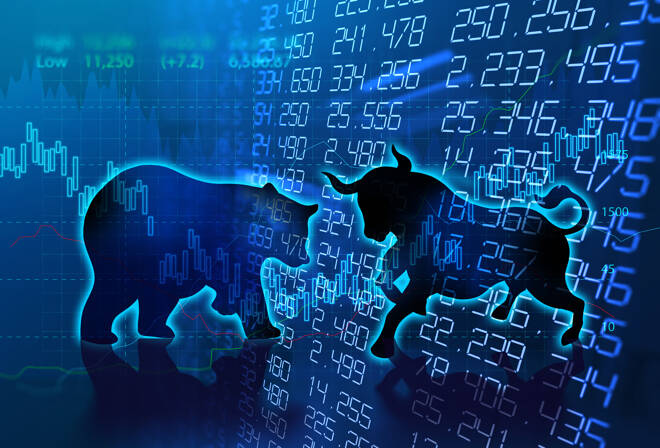Advertisement
Advertisement
Future of American Stocks: Buy or Sell?
By:
The earnings season started on Friday and it’s time to look at annual prospects.
Last year was difficult for the whole equity market. The trade war between the US and China, a slowdown in the global economic growth, global uncertainties that worsened the market sentiment, too tight policy of the Federal Reserve affected stocks a lot. Usually, after the rain, the sun always shines. Has the time of the sun come or it’s still rainy weather for the stock market?
Points for the rise
- The tight monetary policy of the Federal Reserve in 2018 led to the strength of the US currency and the slump of the stock market. In 2019, the Fed will unlikely to raise the rate even once. It gives hope to equities.
- A trade deal is close. It seems like the trade relationship between the US and China has been improving. Comments on the soon deal come up daily. There are no doubts that it’s early to talk about the trade truce but improved market sentiment may push stocks up.
- It can’t be considered as a strong economic factor but at the same time, it can’t be avoided. Recently, Mr. Trump tweeted his accusation of the Fed at a lower level of stocks than it could be. It means that Mr. President is interested in high stocks and will support their future rise.
- BMO found an interesting trend. When the S&P 500 gained 10% or more in the first quarter since 1935, stocks climbed up 6% more on average for the rest of the year. The first quarter of 2019 gave a chance to put this theory into practice. 13% rise of the S&P 500 in the first three months of this year let hope for the bright future.
Based on the factors above, world financial institutions and financers made their forecasts on stocks.
Credit Suisse calmed markets with optimistic comments on the lack of the stock recession in 2019.
Jeremy Siegel, the Wharton School finance professor, doesn’t see signs of the recession, too. Moreover, Mr. Siegel doesn’t pay a lot of attention to possible Fed rate hikes. An uptick of 5-15% is highly likely by the end of this year.
Byron Wien, the Wall Street veteran, predicted new highs for the stock market in 2019. A gain of 15% is highly anticipated by Mr. Wien.
According to a CNBC survey, the stocks market will end 2019 around 3,000.
Points for the fall
Up to now, the S&P 500 shows a solid rise. However, the situation may be not that rosy for the stock market if the factors mentioned above turn around. The trade deal is not reached yet, global issues such as Brexit deal keep putting pressure on markets, especially risky ones. As a result, there is an opinion that the stock market may decline or even fall into recession.
Bank of America Merrill Lynch lowered its S&P earnings forecast for the year to a growth of 4% compared to its earlier forecast of 5%.
Morgan Stanley warned about two or more quarters of the negative or flat growth. According to the bank’s analysts, the forecasts for the first quarter of 2019 were lowered. It means that even if the actual earnings readings outperform, it won’t be a sign of the great surge in the future.
Many analysts see the upcoming recession in the horizon but it doesn’t mean that it’s bad for traders. Falling stocks may be used as a good buying opportunity.
In conclusion, we can say that the future of equities will highly depend on three major factors such as Fed monetary policy, the trade war and the global sentiment. There are no doubts that the situation will change from time to time during the year. To predict the market moves, follow the news to be up to date. As soon as the global situation worsens, be ready for the fall of the stock market. Use it as an opportunity to buy cheap stocks. In the case of the risk-on sentiment, prepare for the stocks’ surge.
About the Author
Darya Bobrovacontributor
Darya holds a BA. in Business Administration from High School of Economics and Law in Berlin and a B.A. in international relations from the Saint Petersburg State University of Economics. During her educational programs, Darya gained a skills set of economic and financial understanding that helps her to provide market commentary.Darya also provides weekly educational articles, webinars and video lessons.
Advertisement
